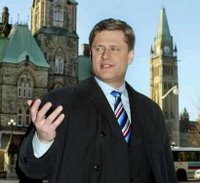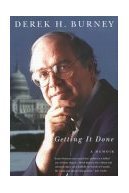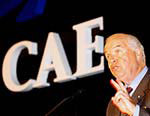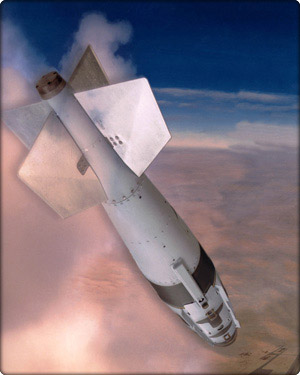
Spoon-fed. What’s In that Spoon??
If you’re like most politically conscious Canadians, you’d have watched the new year election with a degree of attention. You would have watched the polls (which rarely wavered from the prediction of a Conservative win), and you might have watched the Leader’s Debate on CBC, as you carefully weighed your choices and honed in on the candidate that would best suit your needs. The Canadian media would have played a large role in helping you formulate your decision, providing you with information on the most popular political candidates, their platforms, and their promises. And on the day you cast your vote, played your role as citizen and participated in the Canadian democracy as you ought to. The results rolled in. Canada, for the first time in 12 years, was headed by the Conservative party, this time with Stephen Harper as their poster boy.
This is precisely what ought to have occurred. We the Canadian public are fed “information” by our news networks and their affiliated pollsters, and we are faced with what looks like a choice that we must actively participate in. As long as this process is never questioned, never examined, these sorts of democratic elections might continue for years, serving the people of the so-called free nations that participate in them.
But something is gravely wrong with this picture of so-called democracy and choice. Behind the facade of news, information and choice lurks a sinister mechanism of mass control that we the public are completely unaware of. As the media networks churn out appropriate information for our consumption and consideration, the other network of Canadian elites designs and implements public policy, budget decisions, foreign policy, international relations, and the like. The election is merely the legitimating factor - it gives us the people the illusion of choice, that somehow we ourselves have participated in the direction of our future as a nation. Nothing could be further from the truth.
Regardless of how disagreeable this all might seem, the fact remains that more often than not, the truth is unbearably impalpable. We can continue to swallow blindly, whatever excrement elite politicians and their supportive news networks can shove down our throats, or we can open our eyes and see the reality of what it is we’re being fed. The only way to eliminate bullshit is first to recognize it as such.

In the words of Harry G. Frankfurt:
“One of the most salient features of our culture is that there is so much bullshit. Everyone know this. Each of us contributes his share. But we tend to take the situation for granted. Most people are rather confident in their ability to recognize bullshit and to avoid being taken in by it. So the phenomenon has not aroused much deliberate concern, nor attracted much sustained inquiry.”
Bullshit Delivery Systems:
There isn’t a Canadian around that doesn’t know that the CBC is the public broadcasting station. Heck, it’s the only channel you can get for free when you can’t afford cable. The common beliefs surrounding the CBC are primarily centered on dependability, depth of coverage, and lack of bias. There is a general sense of reliability that comes to mind when anyone mentions the CBC. If it’s on the CBC, then it’s to be trusted, right?
Sometimes it isn’t about what the media is telling us, it’s about what they choose not to tell us.For those of you who still hold dearly to your beliefs about the CBC, perhaps you’d be interested in hearing about Kalle Lasn’s (adbusters, The Media Foundation) experience with the network: apparently the money of some Canadians is not accepted as readily as others at the CBC. The network refused to air the association’s “Buy Nothing Day” ad spot, as it contradicted the ubiquitous messages of other advertisers who regularly advertise with the CBC.
http://www.cbc.ca/story/arts/national/2004/09/15/Arts/adbusters040915.html
http://adbusters.org/metas/psycho/mediacarta/legal/inthenews.html
It’s not just the CBC. (Unfortunately, the CBC is widely recognized for it’s accurate presentation of facts, and that wide recognition is far from deserved. As such, it’s the first network which ought to be exposed for it’s biases, strategic omissions, and it’s inability to respond to the needs of the Canadian people).
This sort of bias in information is present not only on a national level, but it permeates all levels of media delivery, all the way down to the free local papers that are left four times a week on our doorsteps. Hanna Kawas, chairperson of the Canadian Palestinian Association has become all too familiar with the kinds of “truth” that our modern media outlets offer us, the public. His letter, which he wrote to correct the editor of his local paper on his erroneous historical portrayal of past events, went unpublished, because it revealed a fallacy in what was purported to be fact.
http://www.aljazeerah.info/Opinion%20editorials/2004%20opinions/May/11%20o/What%20Actually%20Happened%20By%20Hanna%20Kawas.htm
http://blog.zmag.org/ee_links/silence_on_israeli_terrorism
For a full account of the rise of a media mind control enterprise, look at the article on this blog, entitled “SOS From the Republic of Canwest”.
It’s readily apparent that the main objective of local and national media news sources is not truth. Omissions of fact and opinion are a regular occurrence at all levels of news media delivery. These entities work to maintain an image of Canadian society that is generally agreeable to the Canadian people, and maintains the ability of the elite to exercise societal control beyond the scrutiny of the public, whom they manipulate.
He Who Holds the Spoon...
So if the popular media, both in Canada and the US, can be seen as the spoon that shovels this fodder into our waiting mouths, than who is it that holds this spoon?
Most of us would assume, and rightly so, that our elected officials are the spoonholders of the nation. They decide how to administer taxation, how to distribute national funds, how to run the country. And we the people, gladly take this spoon into our mouths - after all, we are the ones who chose these individuals to hold the spoon. This is precisely the illusion that we the people are supposed to have, as those who truly hold the power (and hence the spoon), stay hidden from public scrutiny, and their manipulations of society go unnoticed by the masses.
Stephen Harper has no independent power - his leadership is an illusion. Elections are merely a process through which those in power gain the manufactured consent of the people. The Canadian Prime Minister, the US President, are puppets of the select few who hold the power, who wield the cash, and who use our country and it’s people as their commodity, which can be bought, sold, or traded as needed.

There are a number of elites in this country, most of whom you will not find in the parliament buildings, but rather sitting on numerous corporate boards, heavily invested in energies, armaments, and media. These individuals have a history that reflects tight and lucrative associations with government, lavish lifestyles, and social and racial exclusivity. These people hold a common belief that the masses, we the people, are mere cattle that need to be fed, led, and directed, so that they, the profiteers, can continue manipulating, deceiving, and profiting off, our working class mass.
Meet Derek Burney...
Derek Burney is best known for his role as Chief of Staff to Prime Minister Brian Mulroney from 1987 1o 1989, during which time he helped to finalize NAFTA.

In 1989, he left his post as Chief of Staff to become the Canadian Ambassador to the United States until 1993, at which time he moved on to Bell Canada. In 1999, he moved on to CAE Inc., where he was president and CEO of the company until 2004. He currently sits on the following corporate boards: CanWest Global Communications, Quebecor World Inc. (a print media corporation), TransCanada Pipelines Ltd. and Shell Canada, where he is lead director. He is also president of the board of New Brunswick Power, and is a valued “fellow” at CDFAI (The Canadian Defense and Foreign Affairs Institute). He also teaches at Carleton University, a school which recently published his book/memoir “Getting it Done”. Most recently, Mr.Burney joined Oglivy-Renault, an exclusive law firm here in Canada (where Brian Mulroney is senior partner), as a senior advisor on trade and other international issues. It’s interesting to note that one of the most controversial appointees to cabinet by Mr. Harper is a former employee of this same law firm. Michael Fortier, our new Minister of Public Works, used to practice law at Oglivy-Renault.

After the 39th federal election held on January 23, 2006, Derek Burney led up the Harper transition team meetings, which took place behind closed doors. According to the Globe and Mail, Derek “led the transition team, which was responsible for hiring senior staff and setting up the cabinet-committee structure in the weeks after the Conservatives' Jan. 23 election win”. He continues to be a pervasive force that exerts huge power and influence on the policy and direction of the Canadian government, all beyond the seeing eyes of the public. Stephen Harper responds to the desires of Derek Burney and his social cohorts, and not to the desires of the Canadian people. This is relatively easy to see, provided one knows where to look.
You might call Derek Burney a true prophet if you had heard him speaking in the months before the election. You would observe that everything he spoke of had come to pass in a relatively short period of time. You would realize that Mr. Harper’s actions are merely an expression of this great man’s thoughts, and as such you would recognize the breadth and depth of his control.
Derek Before the Election
On November 17, 2005, Derek Burney made a speech at The Ranchmen’s Club in Calgary, entitled “Canada-US Relations: Are we Getting it Right?”. As he addressed the attendees, he drove home his agenda: “..security and prosperity should be the over-riding priorities for our government, and relations with the United States are critical to both.”
In September earlier that year, he had addressed a crowd at the First Canadian Place, which was playing host at the time to the Toronto Branch reception of the Canadian Institute of International Affairs. At this event, he gave a speech entitled: “Canada-US Relations: Weeds in the Garden.” He opened his speech with the following statement:
“We should take our head out of the sand and reconsider our position on missile defense and endeavor, more generally, to become more than a spectator in the defense of our own continent... If we want to be more relevant in Washington we need to give security a higher and clearer priority. We cannot afford a free ride on our own defense.”
He went on to encourage smarter cooperation with the US in relation to the energy and forestry sectors, saying that the current negotiations over softwood lumber were equivalent to “huffing and puffing”, and that a more “pragmatic...” and “permanent solution” would “inject more certainty for the whole industry”.
He later reminded the attendees, that Trudeau’s “personal dalliances with Fidel Castro..did not sit well with the Regan administration, and that Canada has currently “aggravated already tender nerves in Washington” by it’s abrupt decision to “stand down on Ballistic Missile Defense”. “The mood is not healthy,” he warned.
But Derek Burney had a solution for the audience, and a good one. “We could use more creative thinking and consistent political leadership,” he suggested, “a real sense of purpose from the top reflecting conviction not wariness”. He identified the “pressing need to rejuvenate existing bilateral institutions”. According to Mr. Burney, “NAFTA... is under heavy strain” and “NORAD risks becoming a shell”. Just months before the election he identified “the single biggest threat to Canada’s well being today” as “a lapse or breach of security along our shared border”.
Why Derek Sells “Security”

The most relevant and recent link to Derek Burney’s insistence on Canadian military security can be found in his connection with CAE, beginning in early 2000. CAE is not just a company that has interests in passenger planes, as some news sources would have us believe. In 2000, with the help of Derek Burney and his close ties with the US, the company managed to secure a contract with the ARI (United States Army Research Institute), where it delivered it’s first Medallion visual system to the US Army in Fort Rucker, Alabama.
In 2001, CAE (under Burney’s lead), purchased BAE SYSTEMS Flight Simulation and Training of Tampa, Florida, for US$80 million to “gain access to the mammoth US defense market, and named the company CAE USA”. Exactly a year after this purchase, CAE “became a prime contractror for the US Army” when it signed a US$50 million deal to create the world’s first AH/MH-6 combat mission simulator for it’s 160th Special Operations Aviation Regiment (SOAR).
In that same year, CAE, in partnership with CBD Training won a five-year contract worth C$28 million to provide aircrew training and courseware development for the US Air Force Weapons School at Nellis Air Force Base (AFB) in Nevada. In 2002, CAE Canada also announced a partnership with Boeing to “collaboratively evaluate and develop opportunities in missile defense...[and] to evaluate and develop systems related to air and missile threats, sensors, interceptors, and battle management/command, control, and communications systems.” Burney saw the move as “enabling stronger defence, intelligence, and police cooperation.” “We should increase our defense spending...” he said, “ ...procrastination on such issues like missile defence does not help”.
During his time with this company, Derek Burney succeeded in making numerous and lasting in-roads with all sorts of military production power all over North America, which was assisted by his previous career experience and networking connections as Ambassador to the US. Not only did CAE grow during his reign, they also diversified into marine vessel control and navy training, while “divesting” from less profitable business markets (like forestry) in 2002.
Derek Swings Into Action
Immediately after the Conservatives predictably won the most recent federal election, Derek Burney undertook action to ensure that the priorities he had conceived of for Canada were met. As one of the key members of Harper’s transition team, he had immediate access to policy reform measures, budget decisions, and military directions. And all of this is rather evident from the string of events that followed the last election.
In the second week after the election, Stephen Harper met up with Derek Burney in a closed door meeting. The following week brought with it appointments to cabinet that it seemed no one could have anticipated, including the appointment of an unelected Minister of Public Works, Mr. Michael Fortier.
On January 25, 2006, just weeks after the election, there was a shoot out at the Peace Arch border crossing in British Columbia, a CanWest Global media stronghold. You’d think Mr. Burney knew this was going to occur - as previously mentioned, he had identified a breach at the border as “the single biggest threat to Canada” previous to the election. The aerial shots of the impromptu event, produced by CanWest Global, seem to have been snapped and captured just as the events were unfolding. The incident forced the Canadian guards to leave their posts, as they “feared for their safety”, being that they were unarmed. Within one day, the Harper government responded to the incident with a pledge to arm our Canadian border guards, to increase our border security. Stockwell Day, the newly-minted Minister of Public Safety scurried into the province immediately following the border breach, and assured the public that the guns would be forthcoming. Between the US border paranoia and the well-timed breach of armed criminals brashly penetrating the Canadian border, right in front of CanWest Global’s waiting cameras, it seems Mr. Burney’s desire to have “secure borders” is well on it’s way to being fulfilled.
In line with Mr.Burney’s intolerance of independent nations, Harper moved to cut off funding from the newly and democratically elected Hamas, the Palestinian authority, after they failed to recognize their stolen homelands and the occupiers as “Israel”.
It seems as if Derek Burney was also paving the way for Mr.Harper when it came to his first leader’s summit in Mexico. According to reports from the CBC, there were “secret negotiations” between Canadian and American officials “to arrive at a framework agreement over softwood lumber prior to the announcement of formal negotiations”. Ian Brodie, Chief of Staff for the PM, and Derek Burney, travelled to the US two weeks prior to the Leader’s Summit to meet with US National Security Advisor Stephen Hadley, the senior presidential advisor Karl Rove, and the old Chief of Staff at the White House, Andy Card. Apparently they were working to “have a deal pretty much in place so that when the negotiations resume[d] they [would] conclude quickly and favorably”. It seems Mr. Burney ensured a “pragmatic and more permanent solution” to the softwood lumber issue all on his own. Why delegate when you can get it done yourself?
On April 4, 2006, Harper’s speech from the throne touted the US as our “best friends”, and as the wars wage on in the Middle East, it seems as if Canada and the United States are becoming increasingly similar in action and ideology. According to the Ottawa Citizen, most folks (65%) are OK with Stephen Harper signing off his speeches by sputtering “God Bless Canada” at the end of them, but some of us are unsure about these new ideologies and the inevitable actions that regrettably come with them.
Military Ambitions
The importance that Mr. Burney places on the militarization of the nation is rather blatant, but what is a little more unclear is why this militarization is so important to him. Most of us are familiar with the newly identified threat of “international terror” since the the events of 9-11 captivated us all. More recently, our own “homegrown terrorist act” was apparently avoided by swift and sly intervention on the part of the police and CSIS, but is the this the real reason behind the need for all this proposed military might?

In understanding Canada’s pursuit of a beefier military, it’s helpful to understand the backgrounds of those advocating such a situation in the government. The new Canadian defense minister Gordon O’Connor is a former General and also a former lobbyist. O’Connor worked as a military lobbyist for eight years, until 2004 when he was first elected. “He even lobbied for Airbus (Boeing) on a contract for military transport planes that he will now play a roll in judging” (Murray Cooke, 2006). It isn’t surprising that O’Connor, like Burney, is supportive of the American missile defence project.
One of the current parliamentary debates over military expenditures features O’Connor vs. Gen. Rick Hillier. O’Connor wants to spend $2.5 billion on four Boeing C-17 Globemasters - long haul strategic transports, which would be acquired in a “sole source” acquisition. Hillier would rather the government spend $4.6 billion on 16 short-haul tactical transports. Hillier would rather use rented Russian long-haul planes, available to Canada on 72 hours notice through a NATO agreement, than buy them from the United States. This purchase, according to some, would “deprive the Montreal-based aerospace industry of billions of dollars of lucrative industrial spin-offs in the coming decades”. In all liklihood, as indicated by comments from Peter McKay and other conservative party members, the Boeings will be bought.
In a recent interview Derek Burney stated to the press that he “put[s] a premium on loyalty, and most people in politics do”. He obviously must be loyal to his friends at Boeing, who helped lift CAE to it’s “top-supplier” status with the US Military back in 2002. He is also obviously loyal to the militarization of space, the ongoing “war on terror” and the other “evils” that “independent nations” breed, as has been indicated by his speeches, writings, and current strategic power positions in Canadian society.
Energy vs. Environment
Derek seems to have other allegiances as well, primarily in the energy sector, so it’s no surprise that with the rise of the Conservatives in Canada came the fall of the previously ratified Kyoto agreement. As previously mentioned, Derek Burney is currently the president of the board of New Brunswick Power, a company that burns large amounts of fossil fuels in order to generate electricity for the region and the every hungry United States.
In 2002, the government of New Brunswick “gave their endorsement and approval for a $750 million project to burn Orimulsion,” (which is a patented and generally “dirty” fuel source that comes only from Venezuela)at the Coleson Cove Generating Station. According to David Thomspon (2002), “... the plant has operated since 1976, burning a low grade of number 6 bunker oil”. The largest power plant in New Brunswick, it is “also the largest single point of greenhouse gas (CO2) emissions in Atlantic Canada”.
The Orimulsion dream didn’t last long at New Brunswick Power, as the independent Venezuelans backed out of the deal. For environmentalists in the area, it’s a small relief, as Orimulsion has been recognized has a highly pollutive and volatile fuel which resists clean-up when spilled in water by sinking out of sight into the ecosystems below. Coleson Cove is back to burning the more expensive bunker oil, and the cost of dealing with independent nations and their fickle nature over their exports will be approximately “$2 billion in increased fuel costs over the next ten years”.
When N.B. power isn’t burning oil, it’s burning coal for energy. According to Larry Lack (2005), “almost 80% of Nova Scotia’s electricity and 20% of New Brunswick’s is generated at coal-fired plants... Most of the coal burned by New Brunswick power... is mined at the world’s largest coal mine, located on the Guajira Peninsula in northern Columbia near the Venezuelan border”. This mine, called Cerrejón, was sold in 2002 “to a consortium of Australian, British, South African and Swiss corporations”. In response to pressure from the IMF, these new owners effectively slashed the price of the coal comming from Cerrejón, which made it far more affordable on the world market. New Brunswick Power became one of the mine’s biggest customers, as the low wages of the Columbian mine workers allowed them to purchase the coal at a highly competitive price.
The mine and it’s effects have been highly controversial in Columbia, “where massacres and death squads in mining and petroleum-extraction regions have taken the lives of hundreds of union leaders and thousands of campesinos in recent years”. Currently, the mine is 35 miles wide and five miles long - the consortium that controls that area (until their lease expires in 2034) plans to “ double the mine’s area, extending it into the territory of five more villages that are likely to be relocated or obliterated when the company decides it needs their land”.
It’s no surprise then, that the newly appointed Minister of the Environment, Rona Ambrose is no friend of Kyoto and it’s restrictions on the burning of fossil fuels. According to Rona, Canada is not even willing to purchase the Kyoto “credits”, which can be viewed as fines over-polluters pay to nations who have their emissions under control. The Conservatives have completely backed out of an international agreement that Canada was an integral part of. People like David Suzuki are left completely aghast and dismayed, that the government would have the audacity to lose it’s international face over something has globally influential as climate change.
When looking at the associations, the corporations, and the loyalties that Mr.Burney himself professes to have for such alliances, it’s no surprise that the Harper government turned it’s back on Kyoto to face a more military-oriented and less environmentally friendly future. With all the loyalties Mr. Burney and his associates have to oil companies, energy companies, foreign coal barons and their militias, missile makers, purveyors of armaments and artillery, and “the American way”, it should be no surprise that this is the direction our country is taking. And if you expect to hear about these hows and whys on your local or national news, or read about it in the press, that won’t happen, because Mr.Burney and his associates are well in control of the media and press through intimate board associations like CanWest Global and Quebecor World Inc.
Saving face isn’t important to the faceless - those that operate beyond public scrutiny. What is important, is the continuation of anonymity among the powerful, and a lack of public awareness in regards to social control. So long as we the people remain blind to what it is that forces our obedience and consent, we will continue to destroy each other and our planet in order to provide short term benefits for the elite. It is imperative that we the people begin to understand these mechanisms of control, and who the individuals are who reap the benefits of such mechanisms. With this awareness comes accountability, and with accountability, a new possibility, of lasting fundamental change.
1 comment:
Your blog keeps getting better and better! Your older articles are not as good as newer ones you have a lot more creativity and originality now. Keep it up!
And according to this article, I totally agree with your opinion, but only this time! :)
Post a Comment